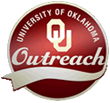Center for the Study of Child Care Employment
This link is to the Center for the Study of Child Care Employment website. The Center's research and recommendations are used to inform policy decisions that support the early care and education workforce. Educators of early learners and program administrators may find its content useful.
Center on Enhancing Early Learning Outcomes
The Center on Enhancing Early Learning Outcomes (CEELO) is one of 22 Comprehensive Centers funded by the U.S. Department of Education’s Office of Elementary and Secondary Education. As noted at its website, "the Center on Enhancing Early Learning Outcomes (CEELO) will strengthen the capacity of State Education Agencies (SEAs) to lead sustained improvements in early learning opportunities and outcomes."
International Dyslexia Association
This link is to the International Dyslexia Association website. As noted at its website, "The International Dyslexia Association (IDA) is an international organization that concerns itself with the complex issues of dyslexia."
International Reading Association
The International Reading Association (IRA) is a non-profit organization committed to literacy development around the world. According to the website, IRA "supports literacy professionals through a wide range of resources, advocacy efforts, volunteerism, and professional development activities."
Literacy Information and Communication System
This link is to the Literacy Information and Communication System website. As noted at its website,"The Literacy Information and Communication System, commonly referred to as LINCS, is a national dissemination, resource gathering, and professional development system providing information on a wide variety of literacy relevant topics, issues, and resources."
The Florida Center for Reading Research
This link is to The Florida Center for Reading Research website.
Vaughn Gross Center for Reading and Language Arts
This link is to the Vaughn Gross Center for Reading and Language Arts website. Based at the University of Texas at Austin, the Vaughn Gross Center for Reading and Language Arts "is committed to providing leadership to state, national, and international educators in effective reading and mathematics instruction through its diversified research, technical assistance, and professional development projects."
What Works Clearinghouse
As noted at its website, "the What Works Clearinghouse, established by the U.S. Department of Education's Institute of Education Sciences, provides educators, policymakers, researchers, and the public with a central and trusted source of scientific evidence of what works in education."
